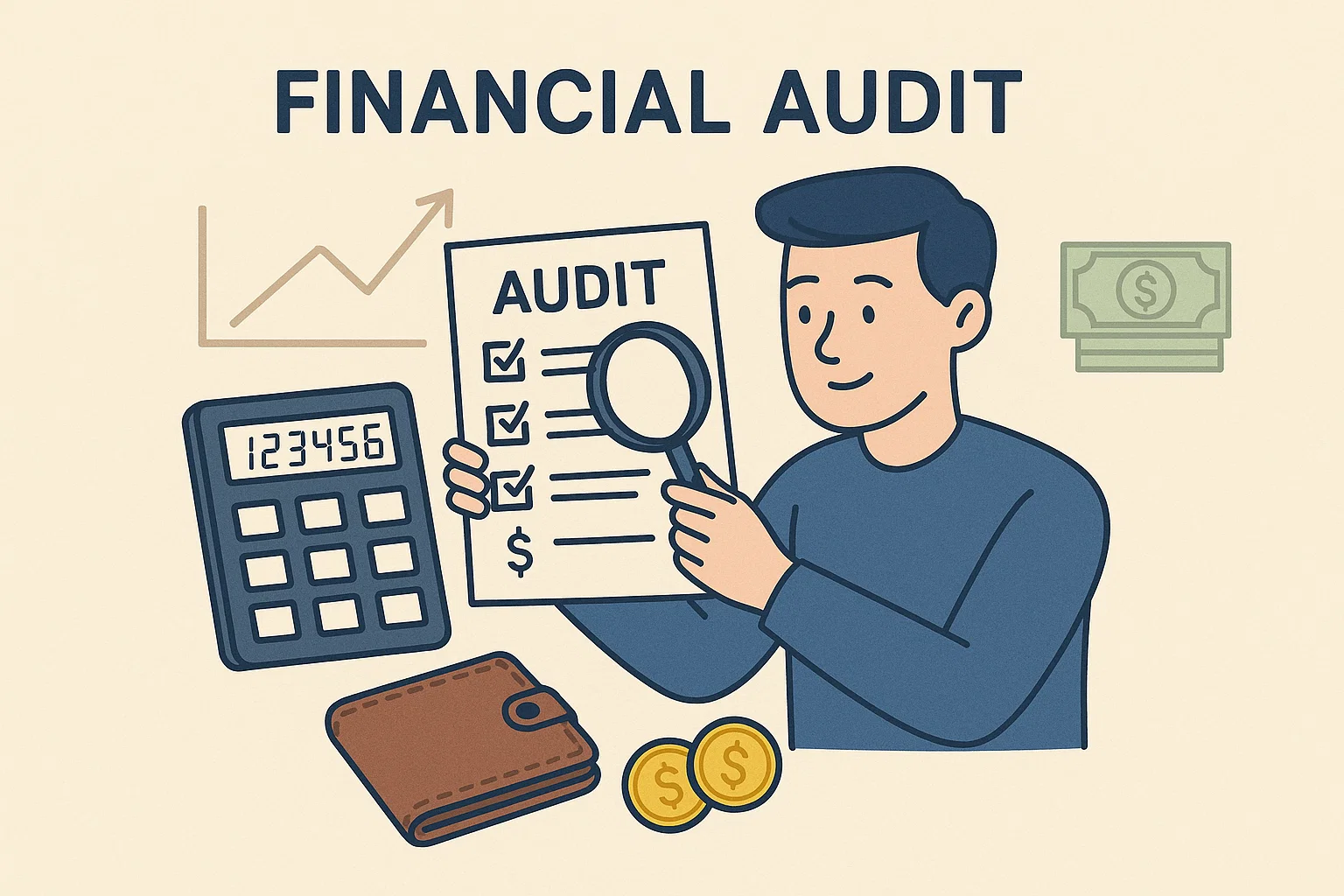Breaking News
Popular News




Enter your email address below and subscribe to our newsletter

A personal financial audit is a thorough review of your income, expenses, debts, savings, investments, and financial behavior. It shows you where you stand, what’s working, and what needs fixing — just like a business does with its finances.
Spot leaks like impulse buys, unused subscriptions, or bank charges.
Track all your loans, EMIs, and credit card balances in one place.
Assets – Liabilities = Net Worth. Track your progress over time.
Adjust your budget based on actual spending trends.
Make sure you have at least 3–6 months’ worth of expenses saved.
Are your expenses helping or hurting your goals like buying a home, travel, or early retirement?
Knowledge is power. An audit gives you peace of mind and direction.
Collect last 3 months of bank & card statements
Categorize all expenses: Needs, Wants, Goals
List all debts and their interest rates
Calculate your current net worth
Review how much you’re saving or investing
Adjust your budget going forward
You can use:
Excel or Google Sheets
Apps like Money Manager or Walnut
Pen and paper (if you prefer manual)
Basic audit: Every quarter
Full audit: Once a year
Mini-review: Monthly check-in with your financial checklist
A: No. Budgeting is planning. Auditing is reviewing what already happened.
A: Your first audit may take 1–2 hours. Monthly reviews can be done in 30 minutes.
A: Not at all. Most people can perform a basic audit using free tools or spreadsheets.
A: Business audits focus on accounting accuracy. Personal audits focus on financial health and behavior.
A: Clarity — so you can stop guessing and start growing.
Now you know what a financial audit for personal use really means — and why doing one might be the smartest move for your money in 2025.
Start small, stay consistent, and let bit2050.com guide you on your journey to financial clarity.